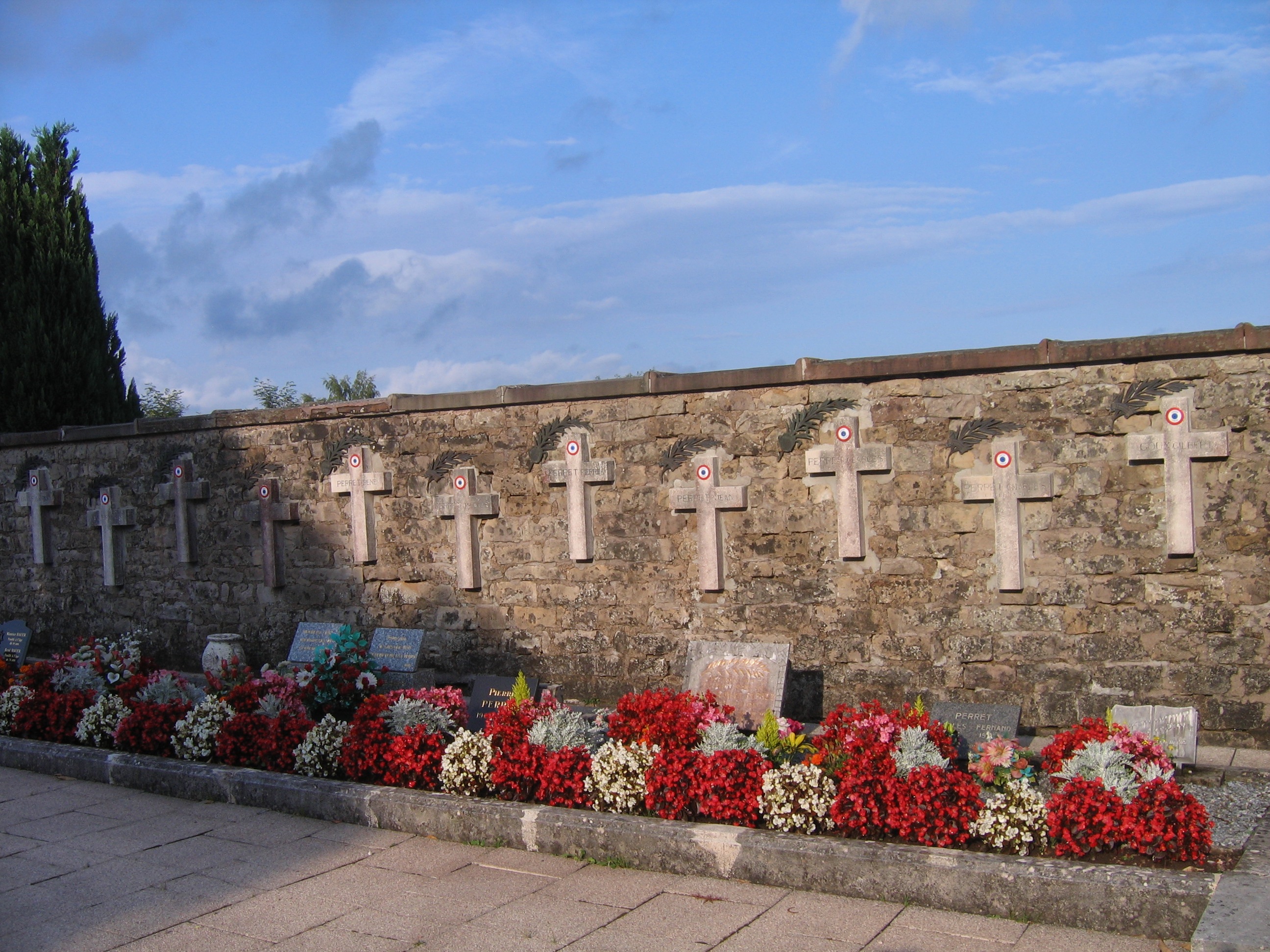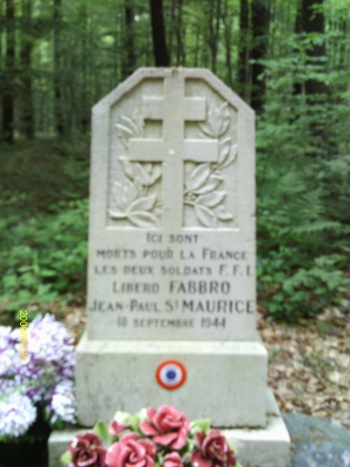Covering Their Tracks
Thursday, September 14
The men of Etobon had to dispose of the body of the German officer, and Jules Perret knew there might be serious consequences to the village if it was discovered. They had already heard of the murder of a child at Chenebier following the death of a German soldier there. The Etobonais knew the Germans could uncover their clandestine operations if they searched the parsonage: it served as the central kitchen for the camps of resistance, the British solders and German prisoners in the woods surrounding the village. The men had to work quickly before anyone came to investigate the Lieutenant’s whereabouts. Perret writes:
"I spent part of my morning arranging the Lieutenant’s grave so that it wouldn’t be spotted, adding dirt, putting dry leaves and branches on it. Three militiamen, supposedly joining the resistance, killed a German at Chenebier. To avenge themselves, the survivors set fire to Pierre Goux’s house, completely destroying it, and savagely killed little Gérard Pillat, a child of nine or ten years old. What news for his prisoner father!
"Everything happens at once. We are hurrying to remove everything from the parsonage that could tip someone off. M. Marlier and I carry casseroles and mess kits full of food to the church, and hide them under the communion table. Four veal heads, cooked, in a basket hidden in the brambles of the old cemetery. At Isaac’s Mill, stoves and boilers, jars of preserves, wheels of Gruyere, sacks of sugar and coffee. And they brought the wounded Germans to the same mill! As for Besson, he is dead. Mama dressed him in one of my suits and we brought him to the church.
"The cannons are getting closer. Hope is returning. As soon as I was in bed, Fernand Goux came to tell me that, without electricity, he couldn’t make Besson’s coffin that night, so that we could bury him at first light. We decided to take the body to the cemetery and put it in the Coulon family tomb, where he can wait. 11:30 p.m. I’m home. It went well. Poor boy! His brother is very upset."
 Katherine Douglass
Katherine Douglass
As I compose this blog, 68 years after the end of World War II, I think about the times I led worship in the church in Etobon. Each time I stood at the altar, I thought about what had been hidden there in the autumn of 1944. There had been explosives and ammunition hidden in the steeple above my head, and pots full of soup under the altar in front of me. The drama and tragedy of those times still live in that sacred space.


